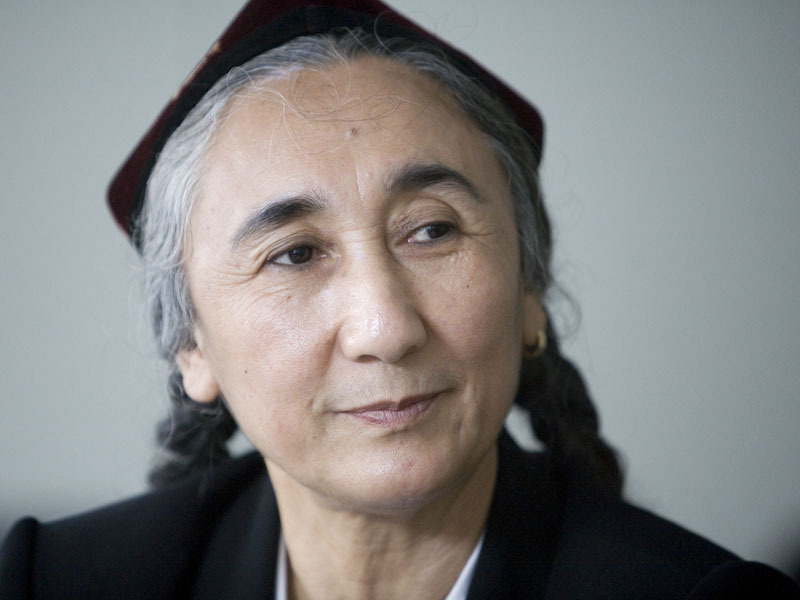UHRP Recognizes 15 Years Since Release of Human Rights Defender Rebiya Kadeer

For immediate release
March 16, 2020 8:20 pm EST
Contact: Uyghur Human Rights Project (UHRP) +1 (202) 478 1920
The Uyghur Human Rights Project recognizes 15 years since the release of prominent Uyghur human rights defender, Rebiya Kadeer, from prison in China. Kadeer remained in prison for five and a half years of an initial eight year sentence that was shortened for health reasons and on account of critical international pressure.
Kadeer began her human rights work in 1997 by founding the “Thousand Mothers Movement,” primarily as a means of promotion of female-specific job training and employment opportunities for women. Before that, she grew her own trading company and department store in Urumqi from scratch into a multi-million dollar business.
“Ms. Kadeer has worked for decades to support the Uyghur people around the world. She is rightly regarded by many as the Mother of the Uyghur people,” said UHRP Executive Director, Omer Kanat, looking back on her life’s work.
While Kadeer built up her businesses and found success in the 1980s and 90s, her fortune changed abruptly when she began to criticize the treatment of the Uyghur people during a National People’s Political Consultative Conference session in 1997, as well as the crackdown on student protests in Ghulja.
She was detained on August 11, 1999, on her way to a meeting with members of an American delegation of congressional staff. On March 10, 2000, the Urumqi People’s Court sentenced her to eight years in prison for “illegally providing state intelligence abroad.”
During her imprisonment, Human Rights Watch honored Ms. Kadeer as a human rights monitor in 2000 and the Rafto Foundation for Human Rights honored her with the Rafto Award in 2004.
Kadeer was released on March 17, 2005, as a result of international efforts to shed light on her case, with the US government and the European Union consistently raising the issue to the international community and in bilateral meetings. Since her release, Kadeer has worked tirelessly to defend the rights of the Uyghur people, including serving several terms as President of the World Uyghur Congress.
As a result, Kadeer has faced tremendous pressure from the Chinese government, which has jailed a number of her relatives, including her son, Ablikim Abdiriyim, who served a prison sentence from 2006-2015 on dubious charges. Another son, Alim was sentenced to prison terms in 2006 and many members of her extended family have been caught up in China’s internment camp system.
Ms. Kadeer’s efforts, despite constant pressure from China, have continued to propel the Uyghur human rights and democracy movement forward. Her release in 2005 illustrates that the international community, when it chooses to do so, can make a genuine impact on the ground in China.
